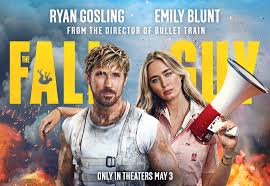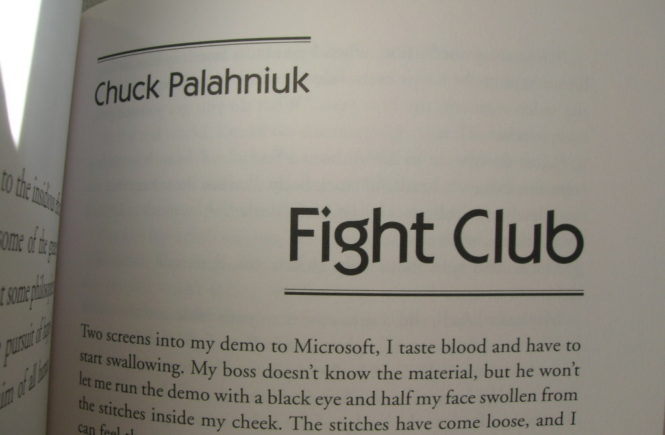If at any point you’ve enjoyed the themes of overthrowing ‘the man’ and the bringing down of the general societal constructs humans live by, then you really should read this book. As Chuck has the last laugh on the reader.
 |
| Chuck Palahniuk. |
Sure, while most people are aware that issues regarding masculinity, a dubious love of consumerism, absentee fathers and community apathy play a big role in the overall narrative of Fight Club; there’s some real tongue in cheek insights applied to the shadows of this plot too. The fact Jack the Narrator pushes his tongue through the hole in his cheek consistently during the crescendo of destruction, is a pretty clear indicator to me of where our dear author is coming from. For all the glamour of the rules of Fight Club, or for all the crushing loyalty of the devotees to Project Mayhem; Palahniuk is studious to point out that without order, acquiescence and complete loss of individuality, Tyler and Jack simply just wouldn’t get any further in establishing their utopia. The very success in breaking free from the chains of normal society is achieved by our ‘heroes’ through the use of those same constraints and prerequisites that society provides. Whoa…heavy.
 |
| Reported proposals to receive film funding from Smokefree NZ, were not successful. |
Palahniuk delivers a powerful blow in order to detail such unconditional love, with just one very well placed, eight word sentence from Marla on the fourth to last page of the book. As mentioned before, the finale chapter is indeed incredibly frightening, where we find our ‘hero’ in a much different situation than he finds himself in at the end of the film. Jack is once more beginning to embrace the security and sanity that being part of an institution can provide, yet the cracks even here, are beginning to show and how long…before this splits apart too? Scary, damn scary final three pages.
 |
| Egomania: Alex from ‘Clockwork Orange’, The Joker and Tyler Durden. Modern heroes? |
A must read for the modern world. Swap Ikea Furniture with iPhone updates. Swap Liposuction for Paleo Diets. Swap Reader’s Digest for The Huffington Post; and we’re all still in or perhaps more correctly romanced by, the same cycle Palahniuk has called attention to of drudgery, revolution and renewal. Although, hunting for wild elk in the shade of the ruins of Rockefeller Centre, does sound kind of nice… read this, then turn off your phone and go for a hike in the bush instead.
We miss you Mr Durden.
Have you read Chuck Palahniuk’s Fight Club and seen the film? Only experienced one of them? Got a favourite part? Let me know in a comment below, on Facebook or on Twitter!







